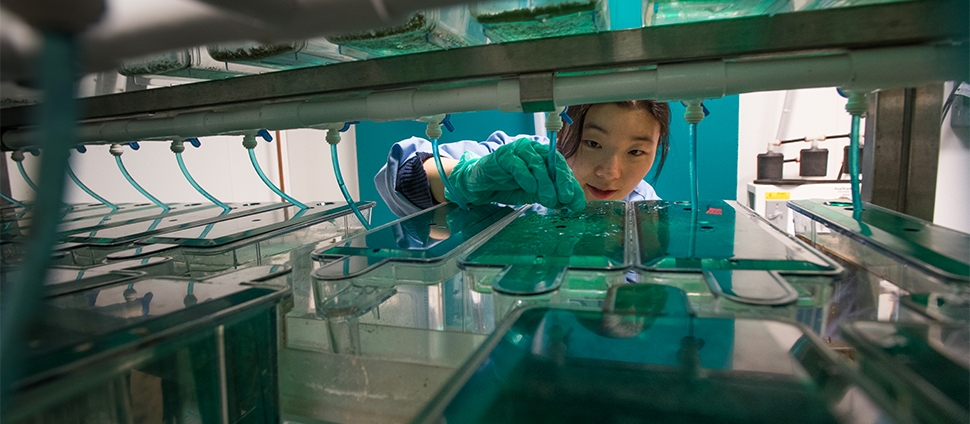Document Type
Article
Publication Date
1-1-2010
Publication Title
Cellular and Molecular Biology Letters
Abstract
Skeletal muscle is a plastic tissue with known gender dimorphism, especially at the metabolic level. A proteomic comparison of male and female murine biceps brachii was undertaken, resolving an average of 600 protein spots of MW 15-150 kDa and pI 5-8. Twenty-six unique full-length proteins spanning 11 KOG groups demonstrated statistically significant (p< 0.05) abundance differences between genders; the majority of these proteins have metabolic functions. Identified glycolytic enzymes demonstrated decreased abundance in females, while abundance differences in identified oxidative phosphorylation enzymes were specific to the proteins rather than to the functional group as a whole. Certain cytoskeletal and stress proteins showed specific expression differences, and all three phosphorylation states of creatine kinase showed significant decreased abundance in females. Expression differences were significant but many were subtle (≤ 2-fold), and known hormonally-regulated proteins were not identified. We conclude that while gender dimorphism is present in non-exercised murine skeletal muscle, the proteome comparison of male and female biceps brachii in exercise-naive mice indicates subtle differences rather than a large or obviously hormonal dimorphism.
Keywords
Creatine kinase, Gender, Glycolysis, Muscle proteomics
Volume
15
Issue
3
First Page
507
Last Page
516
DOI
10.2478/s11658-010-0020-6
ISSN
14258153
Rights
© 2010 by the University of Wroclaw, Poland.
Version
Version of Record
Recommended Citation
Metskas, Lauren Ann; Kulp, Mohini; and Scordilis, Stylianos P., "Gender Dimorphism In The Exercise-Naïve Murine Skeletal Muscle Proteome" (2010). Biological Sciences: Faculty Publications, Smith College, Northampton, MA.
https://scholarworks.smith.edu/bio_facpubs/145



Comments
PMID: 20563704